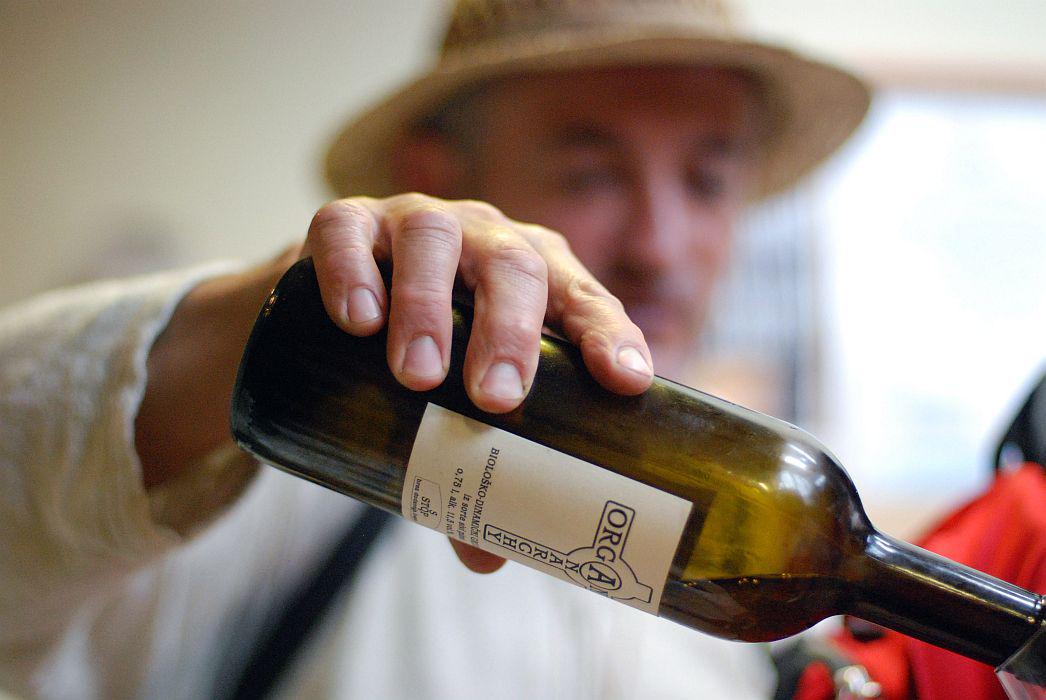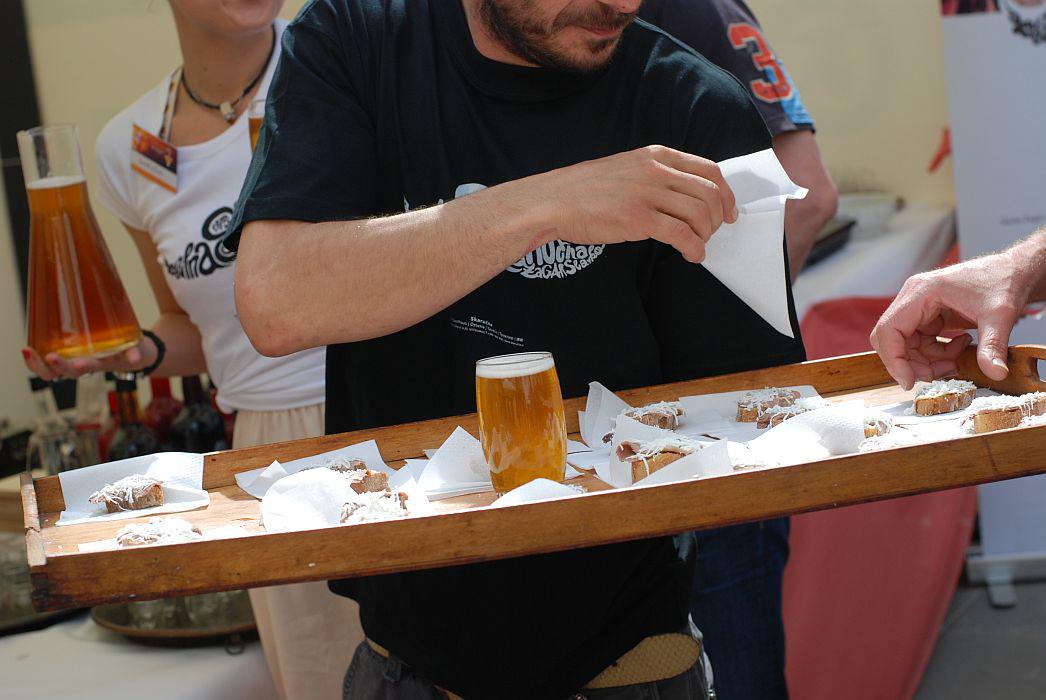

Orange is the fourth colour of wine, and as proven by the third festival of orange wines, it has conquered the Slovenians as well. Approximately 60 vintners participated, and thanks to tenfold number of visitors the palace seemed to be falling apart at the seams. The organizers are already considering the expansion for the next year.
Quite an achievement for the wine of the orange colour, which actually is not as new as it seems. In Italy orange wines have been known for half a century (white wines produced following the procedure for production of red wines, characterized by a longer maceration period), but eventually slipped into obscurity, and were displaced by "more modern" wines. The first to introduce orange wines in our country were vintners from Goriška brda (Gorizia Hills), traditionally bound up with Italy.
Orange, natural, biodynamic…
Among the first to break new ground were the Slovenians living on the other side of the border (Radikon, Joško Gravner), while on our side of the border the procedure was adopted by Aleks Klinec from Medana, who started producing orange wines in the 80s, and in the 90s switched to more traditional procedures. But afterwards he realized that simply wasn't it, and switched back to orange.
Today Klinec is one of those brands which you can rely on; their orange wine is natural and ecological. Which is not always so – not even at the orange wine festival!
"Yes, there is a lot of fakers, which do more harm than good, as during the maceration procedures, while must is in contact with the grape skin, the harmful substances pollute the wine, i.e. pesticides used by vintners who do not obey the rules of the nature," explains Klinec, one of the regular participants of the natural wine festivals organized abroad, who wishes for stricter standards in Izola as well.
Not everything being sold as natural and orange is necessarily truly so, but the fact remains that orange is a very trendy colour at the moment, the demand is growing, and thus also the danger of commercialisation.
Perhaps the organizers, for the following year, should consider not only a larger space, but also a qualified commission which would keep order in this field. The festival has an excellent basis, the number of press and visitors from abroad is growing (vintners from abroad came mainly from Italy, Austria, and Croatia), and Izola gained its place on the oenology map. "At our first meeting we said we hoped the Orange Wine Festival wouldn’t be a one-hit wonder – it turned out it wasn't, but it has grown into a quality festival which brought the name of Izola into the world," said mayor Igor Kolenc at the opening blessing of wines in St. Mary of Haliaetum Church.
From truffles to sea bass, from tongue to mussels
The question remains how »healthy« the festival actually is, as some tried to prove, and there is no guarantee you won't have a headache afterwards, as some vintners tried to convince us, but the fact remains that there was so much going on that nobody had time to think about the congress of the Positive Slovenia Party, which was taking place at the same time.
On the square, caterers offered their specialties – more or less they remained loyal to the topic at hand: seafood, olives, saltpan specialties, truffles, and meat. Rizibizi from Portorož offered mussels with black lentil sauce and green asparagus, Fonda cut sushi from their sea bass, Slavko Žagar from Skaručna spread garlic and olive oil on bread, with slices of beef tongue and goat cheese on top. He also offered štruklji (rolled dumplings) with linden honey and cinnamon, and although wine was in abundance, he poured his own home made spirits until late hours.
Morgan offered their award-winning olive oils and olives, and Belvedur their truffle specialties. The fishermen from Izola made fish stew, and Fioreto from Sečovlje saltpan codfish and marinated anchovies. Uroš Klinec served marinated tongue on beet and horseradish, Torkla House sea salad with wild garlic cream, and Zemono ham in bread crust.
The latter was also offered by Svetozar Raspopović from As, who presented his macerated malvasia at the Festival. "You can taste how salty it is, can't you? Only mine tastes like that!" he said proudly. Among 160 different wines, all of the similar colour, you could distinguish a number of different aromas, notes, shades and styles – just as many as different vintners.
Some wines were anarchic and opaque, like Anarhija made by Aci Urbajs from Rifnik, the others elegant and clear, like malvasia made by Kabol from Croatian Istria. Movia staged the already traditional show with macerated sparkling wine Pura. Tomaž Bolka from Krištof instead of having his own stand, this year decided to help Urbajs and used his »pipe« to check other vintners' for »correct bioenergy«.
There is no doubt: the Izola orange wine holiday should not be missed!

































































